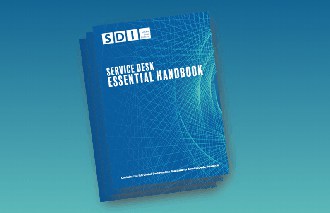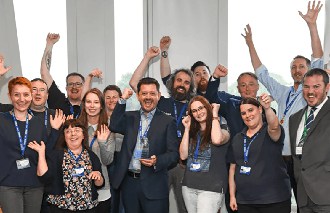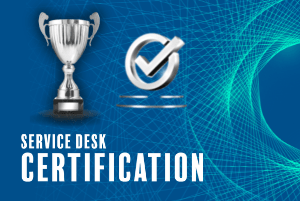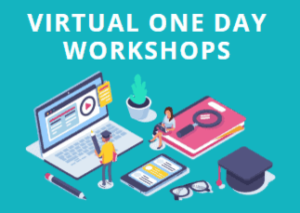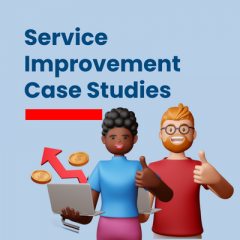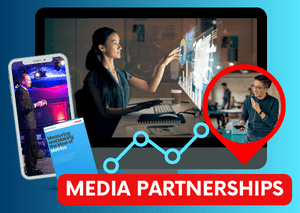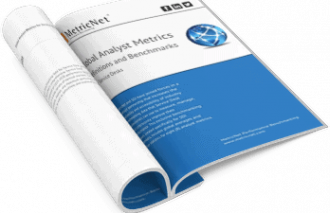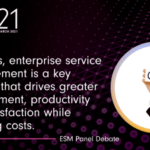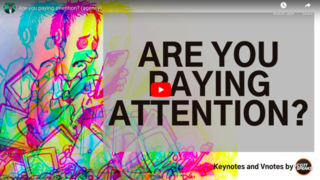
Blog post by Scott McArthur
Our collective attention span is disappearing as more and more channels of information make demands on our time. This is unlikely to change, so how can organisations respond, asks Scott McArthur?
Do I have your attention?
I don’t take for granted for one minute that I do. Or perhaps a whole minute gives my thoughts too much credit.
Scott is a speaker and consultant on transformation, mindfulness and the digital age and will be joining us at SDI21 Live & Interactive – the conference for IT service professionals – as one of our keynote speakers on 16th March 2021.
It’s not news to any of us that our collective attention span has waned as the dominance of social media, technology, and an increased urgency to do more, faster, with a hitherto unknown sense of immediacy, has taken hold.
But perhaps you would feel differently if I paid you to read this. Because paying to read content is so twentieth century. Attention is the new currency, and the new economy. Attention is a limited resource.
In days gone by, we could not expect to receive an immediate response to a letter. And for a time, we might have waited a few hours, or days, for a response to an email. Now, smartphones make any lapse in response above a very limited threshold seem slack; there’s no respite.
Email, however, is not the only entity crying out for our attention. As more brands, businesses and celebrities demand our focus, we have to do more to stand out.
It is telling that YouTube is now the second largest search engine in the world. This speaks volumes about our capacity to consume short-bursts of instantly-gratifying, often completely vacuous content. Some people disapprove not only of the behaviour and the excess of content so readily available, but also the means, and ease with which to access it.
Tuning out the noise
But wasn’t it ever thus? Almost two and a half thousand years ago, Socrates decried the invention of writing, arguing that it would diminish people’s capacity to remember the words and the stories they were being told, as well as the time spent discussing the lessons being communicated.
Surely they could not be properly understood without verbal explanation. As a race, we have reacted to each significant development in communications technology ever since with similar caution.
As technology changes, so too does the way we need to develop and conduct ourselves, tuning into the most useful data, tuning out the more destructive noise.
How we treat our people as employees, and our customers, needs to adapt to be mindful of this storm of competing demands on our attention. We are always going to be guilty of our attention straying when we’re not sufficiently occupied, when, like magpies, we see something shiny.
The Kardashian paradox
This could manifest itself as ‘best dressed on the red carpet’, videos of kittens falling off furniture, or the oiled curves of Kim Kardashian, whose legendary attempts to ‘break the internet’ may not have resulted in the end of days for the work of Tim Berners-Lee, but did, however, get people talking.
When we get frustrated with people for caring about Kardashian, a woman famous for doing nothing, we have to give her credit for the fact that she has, in fact, tricked us into talking about her. Who cares if some of her press is negative? Herein lies the Kardashian paradox.
Not all businesses can afford the oiled limbs of Kim K to grab attention for their brand, but they can work smarter. They can educate their people about their own self-awareness and ability to concentrate. Advertise in more niche ways. Demonstrate, through their own behaviours, that this matters.
I believe great leaders are able to say to themselves, ‘what am I going to focus on?’ then do it. Technology has the potential to help or hinder in this domain, and I believe that ‘if you are always on you are never present,’ which is one of the great challenges facing our generation.
What can leaders do to avoid being distracted?
I believe things have to be as simple as possible to allow this to happen. I call this ‘radical simplicity’.
Organisations are in danger of drowning in data and measurement, so I encourage managers and individuals to consider whether or not what they are doing represents ‘Time Well Spent,’ an idea promoted by Tristan Harris, and specific to software, but which has broader organisational and cultural ramifications. Following Marie Kondo’s example and decluttering your organisation may be a good first step.
We can help ourselves, too. I have long been fascinated by the use of legal performance-enhancing drugs, or nootropics, and wonder whether businesses will start to prescribe them to their own people, encouraging sharper responses for more prolonged periods of time.
Still here? In which case, here’s my parting shot. To ensure they have our attention, and to seek more certainty about their customers buying, or buying into a specific brand, I am certain that corporations will pay us to watch their adverts very shortly. Thank you. Your cheque is in the post.
About Scott McArthur
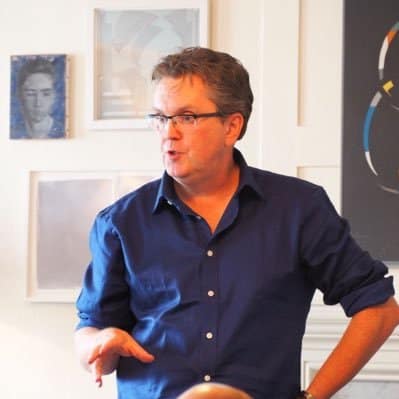
Scott McArthur is a speaker and consultant on transformation, mindfulness and the digital age. He is also co-founder of Sculpture Consulting
